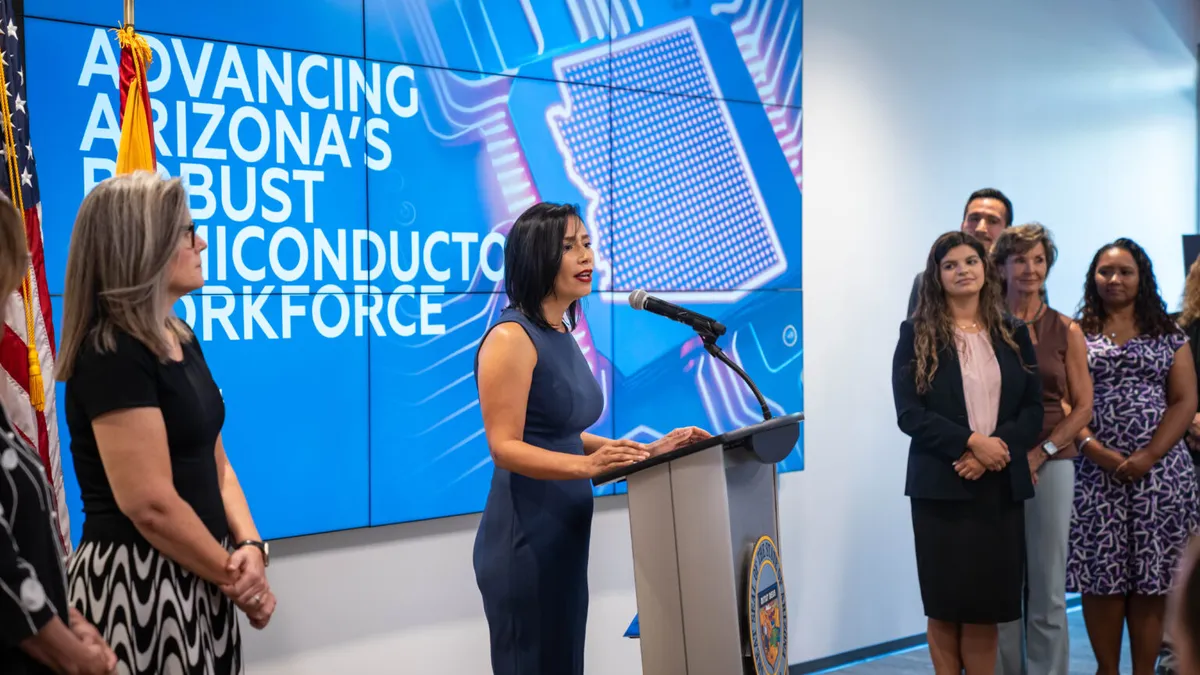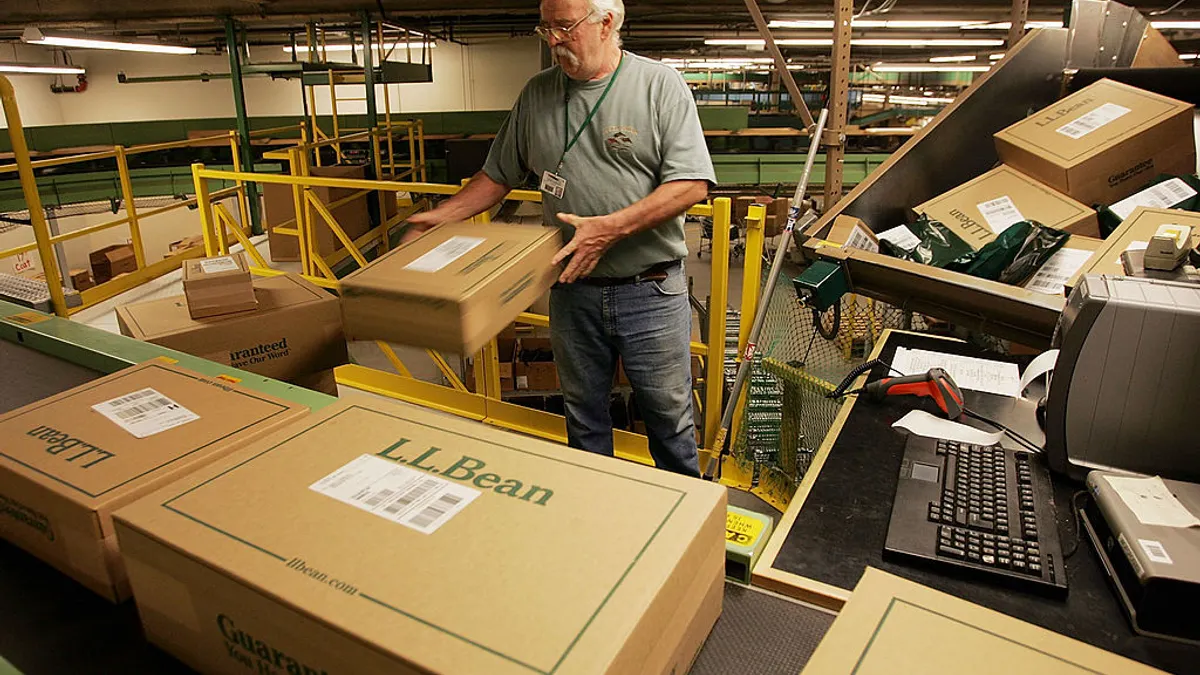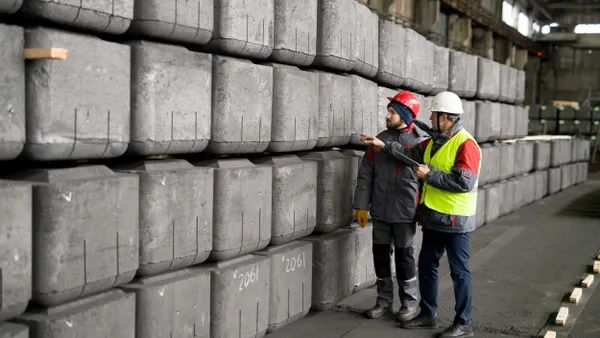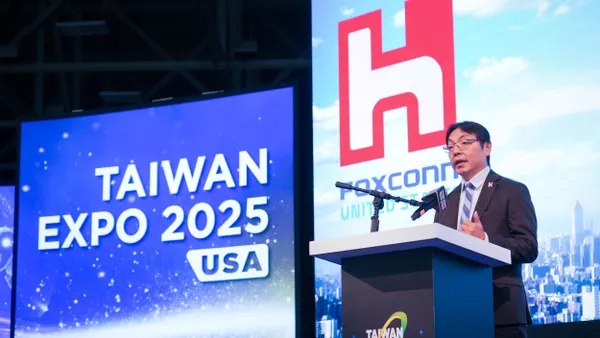Dive Brief:
- Intel is launching its first registered apprenticeship program for manufacturing technicians in Arizona next month, the company announced July 15.
- Training will last one year and include classroom instruction. Apprentices will start as full-time Intel employees and upon completion, will earn a certificate and college credit and be guaranteed a job at Intel, said Cindi Harper, Intel VP of talent planning and acquisition.
- The company also partnered with family services nonprofit Fresh Start Women’s Foundation to recruit its first all-women cohort for its program launch, according to the organization’s July 15 press release.
Dive Insight:
The Arizona facility is one of the fabs receiving a portion of Intel's $8.5 billion in CHIPS funding. One of the requirements for CHIPS applicants is to create a workforce development plan, which could include registered apprenticeships.
The labor pipeline plans are part of how the Biden administration is addressing the increasing demand for a skilled semiconductor workforce.
The industry is expected to add 115,000 jobs by 2030 and the Semiconductor Industry Association expects roughly 58% of these jobs to be at risk of going unfilled. The trade group added that 39% of the unfilled jobs are projected to include technician roles, most of whom have certificates or two-year degrees.
Intel set aside $50 million of the CHIPS money to fund its workforce development, including launching and expanding apprenticeships and other education and training programs, Harper said.
“As the pilot gets underway, we’ll be learning what works and what needs to be adjusted to ensure that we are providing the right resources to set our cohorts up for success,” Harper added.
With its first cohort of apprentices, Intel is specifically aiming to bring more women into the semiconductor workforce. Women are underrepresented in the semiconductor industry workforce, making up between 20% and 29% of roles, according to a 2023 survey by the Global Semiconductor Alliance and Accenture. The analysis also found that 54% of companies surveyed have programs to attract technical women talent.
“There is a shortage of women and underrepresented minorities in the semiconductor industry, which is especially apparent in the technician space,” Harper said. “Our apprenticeship program is focused on attracting a diverse population and is designed to help remove barriers to starting a career in this industry.”
Other CHIPS Act funding recipients have also implemented registered apprenticeships in Arizona. In January, Taiwan Semiconductor Manufacturing Co. announced a $5 million investment to train 80 facility technicians over the next five years under its new apprentice program. The chipmaker received $6.6 billion in CHIPS funding in April to build its third fabrication in Phoenix.













